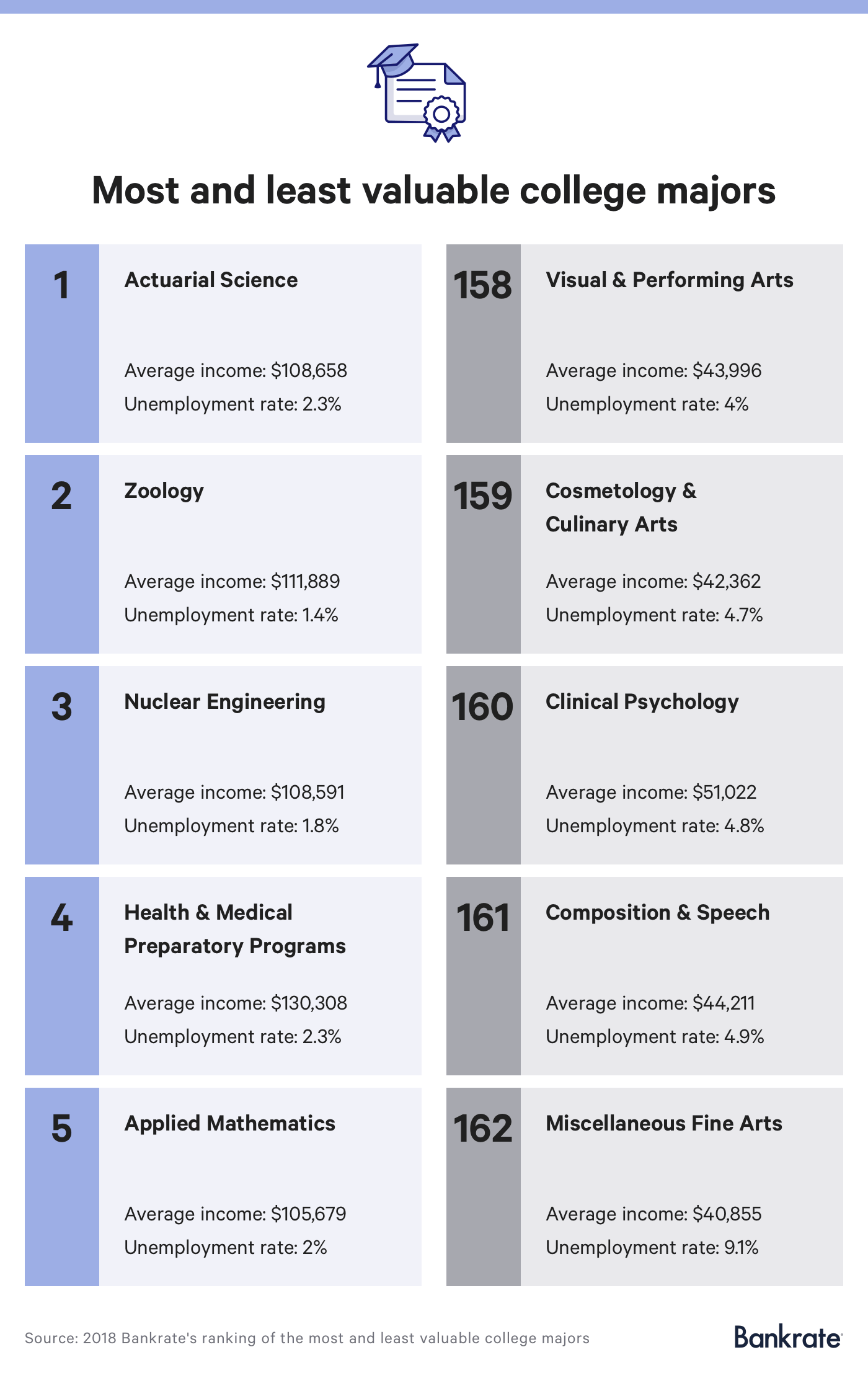College is expensive. Last year, students attending a public, in-state, four-year university could expect to pay an average of $20,770 for a single year (including tuition, room and board, books, and other miscellaneous fees), up 3.1% compared to the year before. Those attending a private four-year university could expect to pay $46,950 for a single year, up 3.5% compared to the year before.
In either case, it’s no wonder that more and more college students are finding themselves needing to rely on student loans in order to pay for college. For the Class of 2016, college graduates held, on average, $37,172 in student loan debt, an all-time high. While that may not seem like too much compared to your typical mortgage, it’s a lot of debt to carry when you’re just starting out in life—especially if you haven’t even landed yourself a job yet.
Need help keeping track of your student loans? Download our free Student Loan Spreadsheet!
With that in mind, it’s little wonder that college students, high school students, and their parents are all thinking about the kind of ROI they can expect to see from the degree that they earn. They all want to know: Which college majors tend to lead to the highest pay? Which majors are the most valuable? Which should be avoided?
This is a hard question to answer definitively, as it tends to change depending on the job market at any one moment in time. Generally speaking, when there are more job openings than qualified people to do those jobs, applicants can command a higher salary; when there is a surplus of qualified applicants and not enough openings, salaries will trend lower. This can vary from month to month and from year to year.
That being said, Bankrate recently conducted a study of 162 college majors with a goal of determining which college majors were the most—and least—valuable in 2018. The results of that study are below.
Editor’s Note: As you will see below, multiple factors went into determining the values of different college majors. Per Bankrate’s press release, average annual salary accounted for 70% of the score, unemployment rate accounted for 20%, and the prevalence of advanced degrees accounted for 10%. Despite having only the 9th highest annual salary of all of the majors surveyed, Actuarial Sciences claimed the title of “Most Valuable College Major” in large part due to the fact that advanced degrees (Master’s and PhDs) are not generally required.

Most Valuable College Majors of 2018
1. Actuarial Sciences
Average Income: $108,658
Unemployment Rate: 2.3%
College grads majoring in the Actuarial Sciences earn an average salary of $108,658 and work predominantly as actuaries. (Other common job titles include financial clerks, underwriters, and data scientists.) Their unemployment rate of 2.3% is lower than the national unemployment average.
2. Zoology
Average Income: $111,889
Unemployment Rate: 1.4%
Students who major in Zoology earn an average salary of $111,889 and work most commonly as veterinary assistants, zoologsts, veterinary technologists, and zoo educators. Of all of the majors in the top 5 reported by Bankrate, they have the lowest unemployment rate.
3. Nuclear Energy
Average Income: $108,591
Unemployment Rate: 1.8%
College grads majoring in Nuclear Energy earn an average salary of $108,591 and tend to work as nuclear engineers, power plant operators, physicists, engineers, and project managers. They have a below average unemployment rate of 1.8%.
4. Health & Medical Preparatory Programs
Average Income: $130,308
Unemployment Rate: 2.3%
College students who pursue a pre-med program earn an average salary of $130,308 and ultimately tend to work as medical secretaries, orderlies, paramedics, medical and clinical laboratory technologists, and medical transcriptionists. They have an unemployment rate of 2.3%, which is below the general national unemployment rate.
5. Applied Mathematics
Average Income: $105,679
Unemployment Rate: 2%
College students who major in Applied Mathematics earn an average salary of $105,679 and most often work as actuaries, financial quantitative analysts, data scientists, mathematicians, and software engineers. Their unemployment rate of 2% is similarly below the national total unemployment rate.
Least Valuable College Majors of 2018
158. Visual & Performing Arts
Average Income: $43,996
Unemployment Rate: 4%
Students majoring in the Visual and Performing Arts typically earn an average salary of $43,996 and often work as actors, graphic designers, dancers, and other kinds of performers. Their unemployment rate of 4% is higher than the general unemployment rate, but is honestly lower than you might expect.
159. Cosmetology & Culinary Arts
Average Income: $42,362
Unemployment Rate: 4.7%
Earning a degree in Cosmetology and Culinary Arts most often leads to an average salary of about $42,362. Students who major in this field of study often work as hairdressers, culinary chefs, bartenders, food servers, retail salespeople, and (oddly?) teachers. They tend to experience unemployment at a rate of 4.7%.
160. Clinical Psychology
Average Income: $51,022
Unemployment Rate: 4.8%
Majoring in Clinical Psychology typically leads to an average salary of $51,022, and those who earn this degree often work as psychologists, mental health counselors, counselors, and social workers. These graduates face an average unemployment rate of 4.8%, higher than the general unemployment rate.
161. Composition & Speech
Average Income: $44,211
Unemployment Rate: 4.9%
College students majoring in Composition & Speech (also called “Rhetoric”) earn an average income of $44,211 and often work as technical writers, copywriters, editors, professors, and retail managers. Their unemployment rate of 4.9% is higher than the general unemployment rate.
162. Miscellaneous Fine Arts
Average Income: $40,855
Unemployment Rate: 9.1%
College graduates who majored in Miscellaneous Fine Arts tend to earn an average income of $40,855 and often work as art teachers, music contractors, craft artists, and (interestingly) drill press operators. They have one of the highest unemployment rates of all majors surveyed as a part of the study: A whopping 9.1%.
The Bottom Line
While Bankrate’s study shows there is a clear correlation between certain degrees and higher or lower pay, it’s important to remember that salary isn’t the only thing that you should consider when choosing a field of study. Other important factors include the job market and unemployment rates for certain degrees, your level of interest in a particular subject, and how fulfilling a career in a certain field would be to you personally. Only you can decide, ultimately, whether or not earning a particular degree will be worth the time, effort, and cost involved in pursuing it.
What do you think? If you’re a current college student or recent graduate, we’re curious: Did potential salary play any role in what major you chose to study? Or did you simply choose a major that you loved and were passionate about? Let us know in the comments below!






